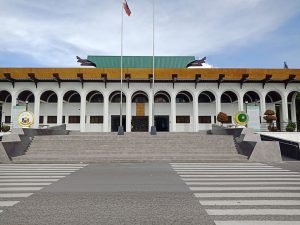
Moro fronts laud amnesty for rebels
PRESIDENT Ferdinand R. Marcos, Jr.’s order to grant amnesty to Islamic and Maoist rebels was cheered on by the Moro National Liberation Front (MNLF) and the Moro Islamic Liberation Front (MILF), which said on Monday that “it serves as a vehicle to ever-lasting unity, peace and reconciliation.”
The amnesty proclamation also “serves as a significant step towards national unity, and promotes a peaceful and a more inclusive nation,” the Deputy Speaker Ustadz Abdulkarim T. Misuari of the Bangsamoro parliament said.
“Furthermore, by choosing amnesty, the President showcases his sincerity and foresight, recognizing that dialogue and negotiation are keys to resolving conflicts with those who once stood against the government,” added Mr. Misuari.
Last week, the Palace issued a series of proclamations offering amnesty to rebels from the Rebolusyonaryong Partido Manggagawa ng Pilipinas/Revolutionary Proletarian Army/Alex Boncayao Brigade (RPMP-RPA-ABB), the Communist Party of the Philippines-New People’s Army-National Democratic Front (CPP-NPA-NDF) or their front organizations, as well as the MILF and MNLF.
Gerry A. Salapuddin, administrator of the Southern Philippines Development Authority, said on Monday that the two proclamations “augur well” with cross-section efforts to foster lasting peace in the Bangsamoro Autonomous Region in Muslim Mindanao.
Mr. Salapuddin, who hails from Tuburan town in BARMM’s Basilan province, was thrice wounded seriously in clashes with soldiers while he was chairman of the MNLF’s revolutionary committee in the island province in the 1970s.
“Armed conflicts are devastating, painful, saddening, sickening. We’ve learned from it that the best way to build peace, based on Mindanao settings, is reconciliation and unity in spreading it everywhere in all of its regions,” Mr. Salapuddin said.
No fewer than 300 members of the MILF and the MNLF, mostly residents of BARMM, have pending criminal cases related to rebellion in different courts in Mindanao, according to officials of different peace-advocacy organizations in the region and human rights lawyers helping them for free.



